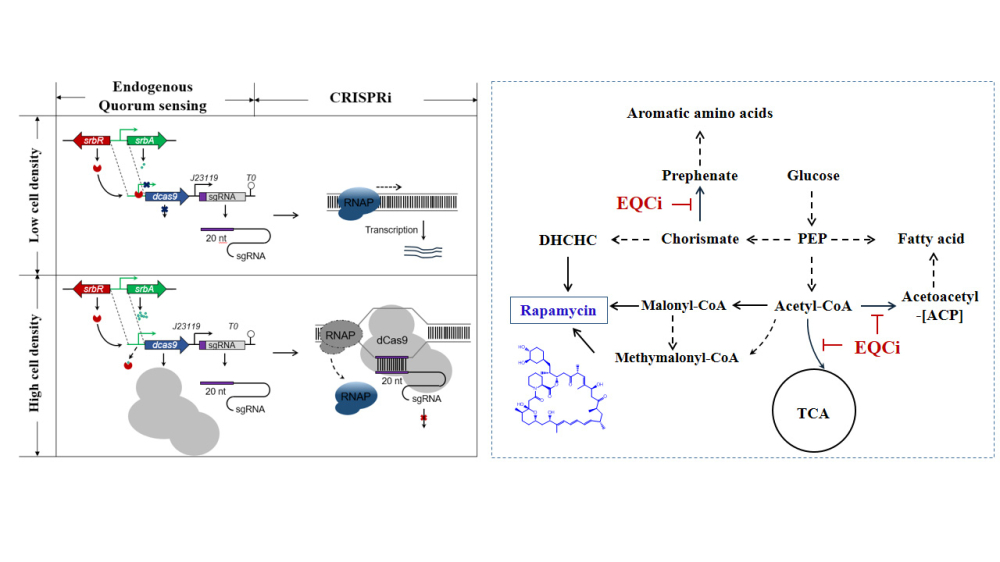Developing a novel autonomous dynamic regulation system in Streptomyces
Microbes have been engineered as renewable cell factories for producing a vast array of commercially valuable products, such as pharmaceuticals, biofuels and bio-chemicals. However, static engineering strategies often result in metabolic imbalance, pathway intermediate accumulation and growth retardation, thus limiting product titers and yields. To address this issue, Quorum-sensing (QS) mediated dynamic regulation has emerged as an effective strategy for optimizing product titers in microbes. However, these QS-based circuits are often created on heterologous systems and require careful tuning via a tedious testing/optimization process. This hampers their application in industrial microbes.
Now a team of researchers led by Dr. Weihong Jiang, Principal Investigator at CAS Center for Excellence in Molecular Plant Sciences, Institute of Plant Physiology & Ecology, Chinese Academy of Sciences, design a novel QS circuit by directly integrating an endogenous QS system with CRISPRi (named EQCi) in the industrial rapamycin-producing strain Streptomyces rapamycinicus. EQCi combines the advantages of both the QS system and CRISPRi to enable tunable, autonomous, and dynamic regulation of multiple targets simultaneously. Using EQCi, we separately down regulate three key nodes in essential pathways to divert metabolic flux towards rapamycin biosynthesis and significantly increase its titers. Further application of EQCi to simultaneously regulate these three key nodes with fine-tuned repression strength boosts the rapamycin titer by ~660%, achieving the highest reported titer (1836 ± 191 mg/l). Notably, compared to static engineering strategies, which result in growth arrest and suboptimal rapamycin titers, EQCi-based regulation substantially promotes rapamycin titers without affecting cell growth, indicating that it can achieve a trade-off between essential pathways and product synthesis. Collectively, this study provides a convenient and effective strategy for strain improvement and shows potential for application in other industrial microorganisms.
This work entitled “Developing an endogenous quorum-sensing based CRISPRi circuit for autonomous and tunable dynamic regulation of multiple targets in Streptomyces” has been published in Nucleic Acids Research, July 15, 2020. This work was supported by grants from the National Key Research and Development Program, the National Natural Science Foundation of China.
Link: https://doi.org/10.1093/nar/gkaa602

Contact:
Dr. Weihong Jiang, Professor
Key Laboratory of Synthetic Biology, CAS Center for Excellence in Molecular Plant Sciences/Shanghai Institute of Plant Physiology and Ecology (SIPPE), Chinese Academic of Sciences
Email: wjiang@cemps.ac.cn